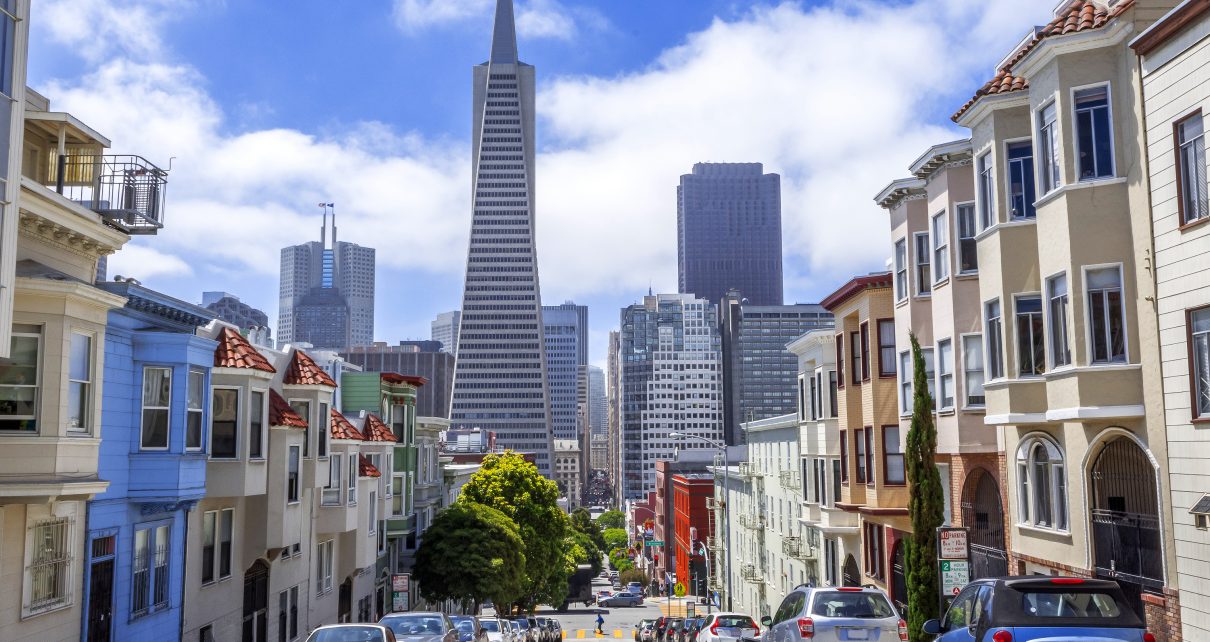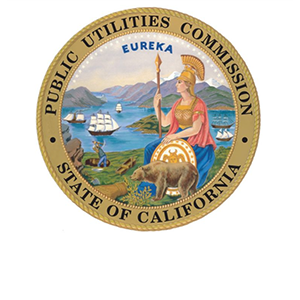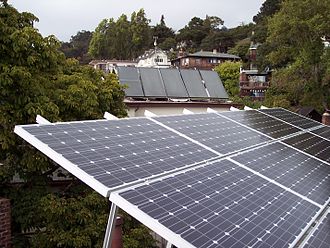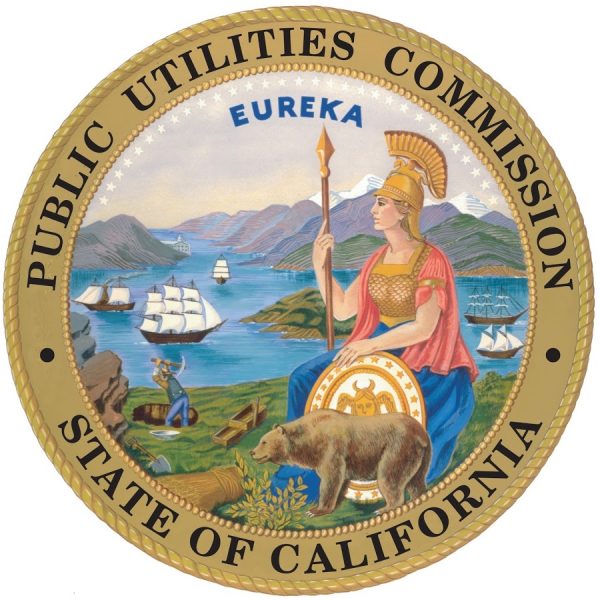
Montgomery St. and Skyline of Downtown areas of San Francisco, CA. (Photo: Randy Andy/ Shutterstock)
CPUC Expands Autonomous Rideshare Services in Bay Area For GM’s Cruise, Alphabet’s Waymo
Polls have shown that people would prefer to have real drivers
By Evan Symon, March 1, 2022 4:33 pm
The California Public Utilities Commission expanded the driverless rideshare market on Monday by issuing Drivered Deployment permits to General Motors’ Cruise service and Alphabet’s Waymo service.
Since the 2010’s, multiple driverless car companies have fought to become the first driverless ride service carrier in California. In June of last year, after years of setbacks from all companies, Cruise became the first to have a limited passenger service be approved by CPUC and the DMV. Waymo eventually caught up later that year, with Cruise then getting a major backlash in December with the San Francisco transportation agency raising multiple concerns about it despite already operating on a limited capacity in the Phoenix area. Other driverless startups such as Pony.ai have also featured setbacks since late 2021.
Both Cruise and Waymo finally cleared the next major hurdle on Monday. Under older permits, Cruise and Waymo were only allowed to take passengers for free in a somewhat limited area. Under the new Drivered Deployment permits, both companies can now receive fares from customers and are allowed shared rides instead of singular, taxi-like service before.
However, both companies were granted the permits with somewhat different parameters. Cruise will only be allowed the permitted service in San Francisco on public roads between 10 PM and 6 AM with the speed limited to below 30 miles per hour. Waymo meanwhile can operate in San Francisco and San Mateo County with speeds allowed up to 65 miles per hour. Both companies will also be limited by weather, with CPUC not allowing them to operate during heavy rain or fog, and requiring them have a safety driver behind the wheel and ready to take control if needed.
More autonomous rideshare vehicles coming to Bay Area
“We will use what we have learned from operating our autonomous commercial ride hail service in Arizona and apply it to our growing service in San Francisco,” said Waymo in a statement on Monday. “We have tens of thousands of riders on a waitlist in California after we launched a tester program in August. We’ll begin offering paid trips through the program in the coming weeks.”
Cruise vice president for global government affairs Prashanthi Raman also added that “the announcement was another positive incremental step forward. Our mission has always been to launch a driverless commercial ride hail service here in San Francisco, and that’s what we’ll continue working with our regulators to deliver.”
Experts noted on Tuesday that, despite the approval, the companies biggest hurdle will be to find a steady stream of passengers.
“Waitlists are fine, but this really comes down to overall adoption,” Sebastian Jordan, a mass transit advisor who has worked with multiple agencies in California in the past, told the Globe on Tuesday. “To many, autonomous vehicles are still either very scary or a big joke. Look no further than the Onion today to find satirical stories making fun of them. Polls have shown that people would prefer to have real drivers, even if the cheaper fare is the driverless one.
“I’ve said this before, but older generations and younger generations alike want someone behind the wheel. Two-thirds of the country don’t want to buy one, with over 70% being too afraid to ride in one. That doesn’t exactly bode well here. We’ll see if adoption picks up with more of these coming to San Francisco now, but self-driving rideshare companies may find themselves being short on customers.”
Broader permits are expected to be issued to Waymo and Cruise later this year should both perform optimally with the new CPUC issued permits.
- Bill to Require Law Enforcement Disclosure if AI Was Used To Help Write Reports - August 7, 2025
- Gov. Newsom Files FOIA Request To ‘Expose True Cost’ Of L.A. Federal Troop Deployment for Anti-ICE Riots - August 6, 2025
- California Redistricting: How Newsom’s Plan Will Demolish Hard Fought GOP Gains - August 6, 2025




